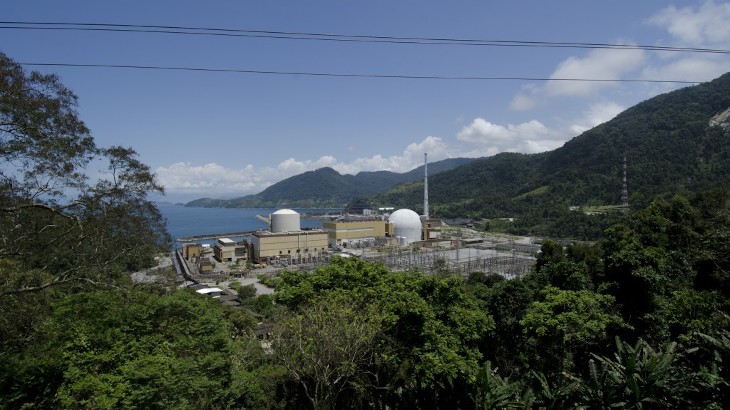Rondinelli said the meeting “represents a significant step in consolidating cooperation between CNEN and Eletronuclear, reaffirming the joint commitment to the safe and sustainable development of the nuclear sector in Brazil". He gave an update on the negotiations relating to CENTENA which will be a disposal facility for radioactive waste, with operational support buildings and research and technological facilities for things such as nuclear medicine.
Leite said that the supply of nuclear fuel "adding value to Brazilian uranium, could be the main immediate market achievement in the short term".
They agreed on the need for a fresh Brazilian nuclear programme, with Rondinelli indicating the process of developing it would be outlined after June's 5th National Conference on Science, Technology and Innovation.
Their meeting came a week after representatives from Eletronuclear and Empresa Brasileira de Participações em Energia Nuclear e Binacional (ENBpar) met with regional government figures to discuss strategic projects for the company, including the life extension project for Angra 1 as well as completion of Angra 3.
According to Eletronuclear they also discussed the possibility of a tax incentive at the state level for the nuclear sector, as had been done from 2011 to 2017 with federal taxes, saying "the tax incentive could improve Eletronuclear's cash flow, an essential measure for the company's long-term sustainability. It is also noteworthy that the state government can be a strong ally to support the extension of the useful life of Angra 1 and the advancement of Angra 3".
Brazil currently has two reactors - Angra 1 and Angra 2 - which generate about 3% of the country’s electricity. Work on the Angra 3 project - to feature a Siemens/KWU 1405 MW pressurised water reactor - began in 1984 but was suspended two years later, before construction began. The scheme was resurrected in 2006, with first concrete in 2010. But, amid a corruption probe into government contracts, construction of the unit was halted for a second time in 2015, when it was 65% complete. It resumed again in November 2022 - at the time of the project’s revitalisation, Eletronuclear’s aim was to start operations by the end of 2026.
Brazil also began a process to identify sites for new nuclear power plants in 2022. The country has historically relied on hydro for as much as 80% of its electricity but changes in rainfall patterns produced droughts which reduced this to 65% by 2018. Brazil’s National Energy Plan to 2050 says the country aims to add 10 GW of nuclear capacity in the next 30 years.





_730_93825.jpg)

_83147.jpg)
_87299.jpg)






